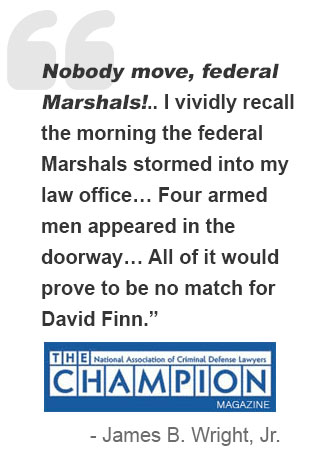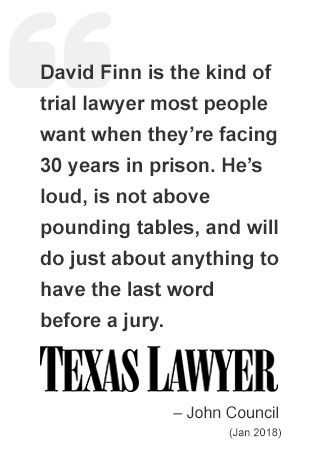


DMN- Man Lost in Jail 15 Months
Note:
No, this is not a repeat story. You might think so if you have followed the Dallas County Jail problems over the past several years. This is brand new, fresh off the press. One can’t help but wonder if the United States Department of Justice Civil Rights investigators might want to investigate this case when they arrive next month.
Oh, that’s right, I almost forgot….our local leaders have assured us that the jail problems have all been fixed. I’ll be sure to pass on those assurances to Walter Mann.
Regards,
David Finn
1/12/2006
Dallas Morning News
COURT FINES MAN, 69, WHO WAS STUCK IN JAIL
Staff Writer, Jim O’Neill
Walter Mann Sr. figured he had paid Dallas County plenty by spending 15 months in jail without any felony charges filed against him and without access to a lawyer. In fact, he figured Dallas County owed him something.
But as he left the jail a few weeks ago, after a public defender heard about his plight and worked to get him released, he was handed a citation that ordered him to appear in Justice of the Peace Luis Sepulveda’s court on Jan. 5.
Mr. Mann is indigent and takes medication to ward off the effects of schizophrenia.
He spent his first few nights of freedom sleeping in the cab of an old truck behind the Oak Cliff church he attended.
When Mr. Mann showed up in court Jan. 5, he was told a warrant was outstanding against him for a bad check he wrote to Minyard’s for $67.05.
He was told he would have to pay the amount of the check, plus a fine of $500 and court costs of $93. But first he would have to contact the district attorney’s office to work out the details.
The district attorney’s office on Wednesday sought the case’s dismissal, and the judge will review the request.
Mr. Mann, who showed up in court last week with his pastor but no lawyer, pleaded no contest.
And on the second page of the plea paperwork, where a line can be checked to indicate if the defendant is indigent or not, a checkmark appears next to “I am not indigent.”
Mr. Mann insists he did not make that mark. But Judge Sepulveda said that clerks are not allowed to fill out that part of the form and that they are well trained to know they shouldn’t.
Mr. Mann, who had just endured 15 months in jail without apparent justification, now wondered why he had to pay such heavy court fines on a $67 bad check. After all, a bad check is considered a Class C misdemeanor, which carries a maximum fine of $500 and no jail time. For such misdemeanors, the county offers people who cannot afford to pay a $300 credit toward fines for each day of jail time.
By that standard, Mr. Mann’s 15 months of unnecessary jail time would give him enough credit to wipe out about $135,000 in court fines and fees.
DA’s office
He sought out defense lawyer David Finn. On Tuesday, Mr. Finn called Nick Cariotis, who has headed up the bank fraud division of the district attorney’s office for more than a decade, and explained Mr. Mann’s situation.
On Wednesday, The Dallas Morning News talked to Judge Sepulveda about Mr. Mann’s check case and left a message for Mr. Cariotis. A short time later, Mr. Cariotis called Judge Sepulveda and asked that the bad check case be dismissed.
“I did it in the interest of justice,” Mr. Cariotis explained. “This whole thing was a classic horror story for Mr. Mann. Being stuck 15 months in the jail is hard to fathom. Under the policies, he would be entitled to having everything cleared with the time he served in jail.”
Judge Sepulveda said he “really feels for people in a situation like Mr. Mann’s. This is not what should be happening in Dallas County, or anywhere. Our system should be a good one.”
Mr. Mann, 69, had originally been brought to the jail after his 13-year-old son was found guilty of assaulting him and was assigned to a boot camp. The county charged Mr. Mann $50 a month to cover the cost of assigning his son to boot camp. But Mr. Mann, who is unemployed, has an eighth-grade education and was on disability benefits, didn’t pay.
As a result, in spring 2004, the district attorney’s office filed a motion for contempt of juvenile court, and after Mr. Mann failed to appear for a hearing the following July, the court issued a writ of attachment, authorizing the Sheriff’s Department to take Mr. Mann into custody, hold him in the jail and “bring him immediately before the judge of the 305th district court … on the next work day.”
Unfortunately for Mr. Mann, he was never assigned a lawyer, and a ruling in the contempt case was never made. He spent most of his time in the geriatric ward of the George Allen Detention Center.
He said he filled out forms that the jail provides for inmates who have not been assigned a lawyer after a month of incarceration, but nobody responded. He talked to guards about his situation, but nobody came to his aid.
“They held me like I was a piece of steak or something,” he said. “They never gave me a lawyer. How can you keep a man in jail for nothing?”
Ultimately, he spent more time in jail than his son had spent in boot camp for assaulting Mr. Mann.
Finally, a new cellmate told his public defender, E.A. Srere, about Mr. Mann’s fate. She and public defender Shoshana Paige made inquiries, and Judge Cheryl Lee Shannon, when notified, ordered Mr. Mann’s release.
‘Dead wrong’
That’s why he was so perturbed when he was told about the nearly $600 in court fines over the $67 bad check.
“It sounds like the right hand doesn’t know what the left hand is doing,” said Frederick Moss, an expert on criminal law and legal ethics at Southern Methodist University’s Dedman School of Law. Making Mr. Mann pay the fines after serving 15 months without cause, Mr. Moss said, would be “dead wrong. They ought to leave the guy alone.”
He said Mr. Mann’s entire nightmare was “a major screw-up” and “just shows the jail needs an ombudsman for the prisoners. I don’t understand why the county doesn’t see that.”
Said Mr. Finn, “I guarantee you that if Walter Mann knew that by calling the police and reporting his son’s assault he would be required to pay the costs and then get thrown in the equivalent of debtors’ prison when he couldn’t pay, he’d never have reported the crime in the first place.”
Phone Numbers
Office: (214) 538-6629







